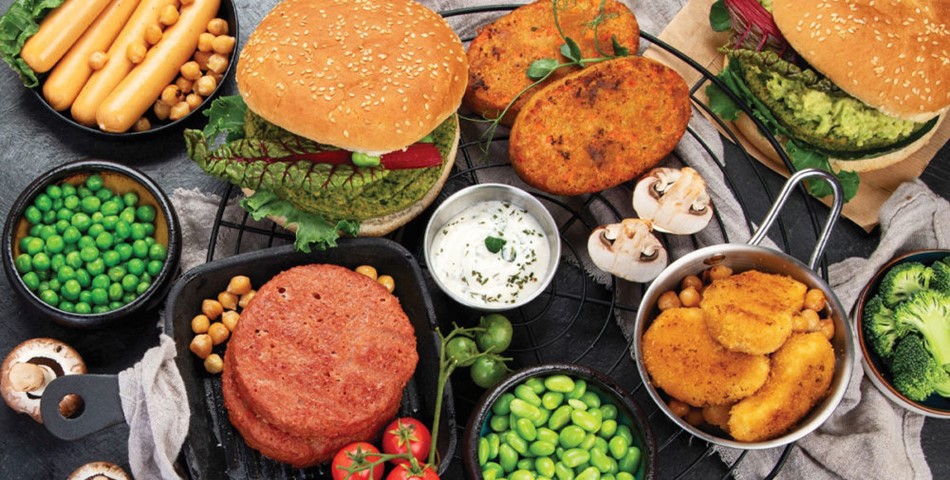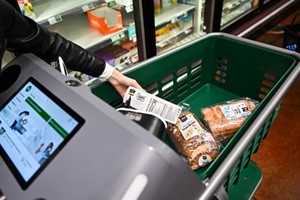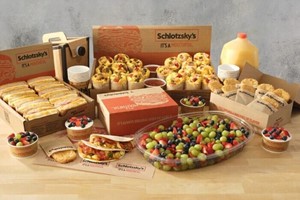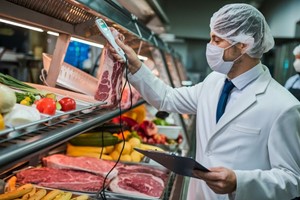CHICAGO — Plant-based innovations, as in recent years past, were a highlight, while artificial intelligence (AI) had a breakout year on the expo floor July 14-17 in Chicago at IFT FIRST, the Institute of Food Technologists’ annual meeting and food exposition. Egg replacement options and fruit from baobab trees in Africa stood out in the Startup Pavilion.
Expect Ingredion, Inc. to continue exploring plant protein options after naming Michael Leonard, PhD, as senior vice president, chief innovation officer and head of protein fortification earlier this year. Leonard was chief executive officer for two companies involved in alternative proteins and precision fermentation: MycoTechnology and Motif Food Works. Precision fermentation, a technology that may be used in plant-based efforts, is still in its “early days,” Leonard said The food industry still needs to create systems to improve taste and texture in plant-based alternatives, Leonard said. In 2021 and 2022, investors poured money into plant-based startups. While sales have slowed recently for plant-based meat alternatives, Leonard said he expects the current difficult climate to be short-lived, provided improvements are made.
“These products have to taste great,” he said.
Ingredion at IFT launched Vitessence Pea 100 HD, a pea protein intended to help maintain the softness of cold-pressed bars throughout shelf life, to provide preferred texture and sensory attributes and to add nutritional value, according to the company. The pea protein delivers a minimum of 84% protein on a dry basis, which helps to enable claims of “good source” or “excellent source” of protein. Ingredion sampled plant-based chocolate tahini jelly protein bars that contained 8 grams of protein and 6 grams of fiber per serving, which qualified as a good source of protein and a good source of fiber.
At its booth, Bunge featured Beleaf PlantBetter, which the company introduced in North America this year after launching in Europe in 2023. The plant-based butter alternative offers the aroma, taste and texture of traditional butter, according to Bunge, which conducted a series of blind sensory panel studies across three countries to demonstrate Beleaf PlantBetter was on par with popular butter brands. The ingredient also may help manufacturers reduce costs in the face of volatile dairy butter prices, according to the company.
AAK sampled its plant-based cream cheese icing in a carrot cake scone and its plant-based cream cheese with bagel bites. The cream cheese alternative has low syneresis, according to AAK. When compared to using 100% coconut oil, AkoVeg 115-14 offers a 26% reduction in saturated fat and a stronger sweet cream flavor perception when evaluated in informal sensory testing, according to the company. AkoVeg 115-14 contains coconut and high-oleic sunflower oils.
AI for ingredient options
Mintel earlier this year launched Ingredientscape AI technology. Industry has known Mintel for two forms of research, said Mike Bernatz, vice president, global head of RevOps and enablement at Mintel. Market intelligence involves collecting data from around the world related to consumer behavior. Human intelligence involves hundreds of Mintel analysts working in different global categories that study market intelligence and then suggest ideas for clients.
“The new frontier is of course artificial intelligence, and what we can do with artificial intelligence is accelerate those first two components that clients have come to expect from us,” Bernatz said.
Mintel may identify ingredient trends by noticing how frequently an ingredient appears in new product launches, with an example being oats in snack bars. Mintel has offered Ingredientscape for about four months. Dealing with volatile cocoa prices is one way Mintel clients may use the program.
“We think we can’t resource cocoa reliably anymore, so what are we going to do about it?” Bernatz said. “What are we going to use as a replacement? We use a tool like this to help (clients) visualize it and create a path to solve that problem.”
Ingredientscape AI monitors potential alternative ingredients that may help reduce the amount of cocoa needed in an application. The ingredients include palm fat, shea oil, butter fat, safflower seed oil, vegetable fats and peanut butter.
Alianza showcased how AI technology may optimize formulation time and processing for margarines, shortenings and emulsion gels. An Alianza tool called Jul-ia uncovers the relationship between triglycerides and the physical characteristics of fats and oils. The knowledge makes it possible to design margarines and shortenings, incorporate new ingredients into formulations, and provide alternatives, according to Alianza. The James.ify tool develops a formulation for liquid margarine impacting saturated fats, calories and costs using gelled emulsions that mimic the rheology and sensory characteristics of liquid margarine. Anthon/e, a quantum computing-based system, potentially reduces errors and minimizes prediction times for new fats and oil blends. The system is in a validation stage.
Alianza at its IFT booth sampled cookies containing SmartShortening created with the assistance of AI. The 75-year-old company operates three refineries in Colombia, where the company is based, and has facilities in Mexico and Chile and a commercial operation in Europe. An applications lab in North Carolina is scheduled to open in 2025.
The Startup Pavilion
Two companies in the IFT Startup Pavilion offered egg-replacing ingredients. Revyve, which develops texturizing ingredients made from upcycled brewer’s yeast, introduced an ingredient that mimics the performance of eggs without requiring the addition of starches, emulsifiers or unfamiliar binders, according to the company. In burger patties, it behaves like egg whites. Revyve is working to gain self-affirmed Generally Recognized As Safe (GRAS) status for the ingredient.
The Every Co. uses precision fermentation to create a nature-equivalent egg replacer called Every EggWhite that replaces traditional egg whites in baked foods and meat alternatives. It requires less water, land and greenhouse gas emissions than traditional eggs, according to the company.
Two companies in the Startup Pavilion featured ingredients from baobab trees in Africa. Baobab Foods LLC, Seattle, offers baobab powder from the tree’s fruit. Containing fiber, vitamin C, calcium and potassium, baobab fruit is tangy and citrusy. The baobab tree is known as the “upside down tree” because the treetops look like roots. Baobab Foods has warehouses in South Africa and the United States.














